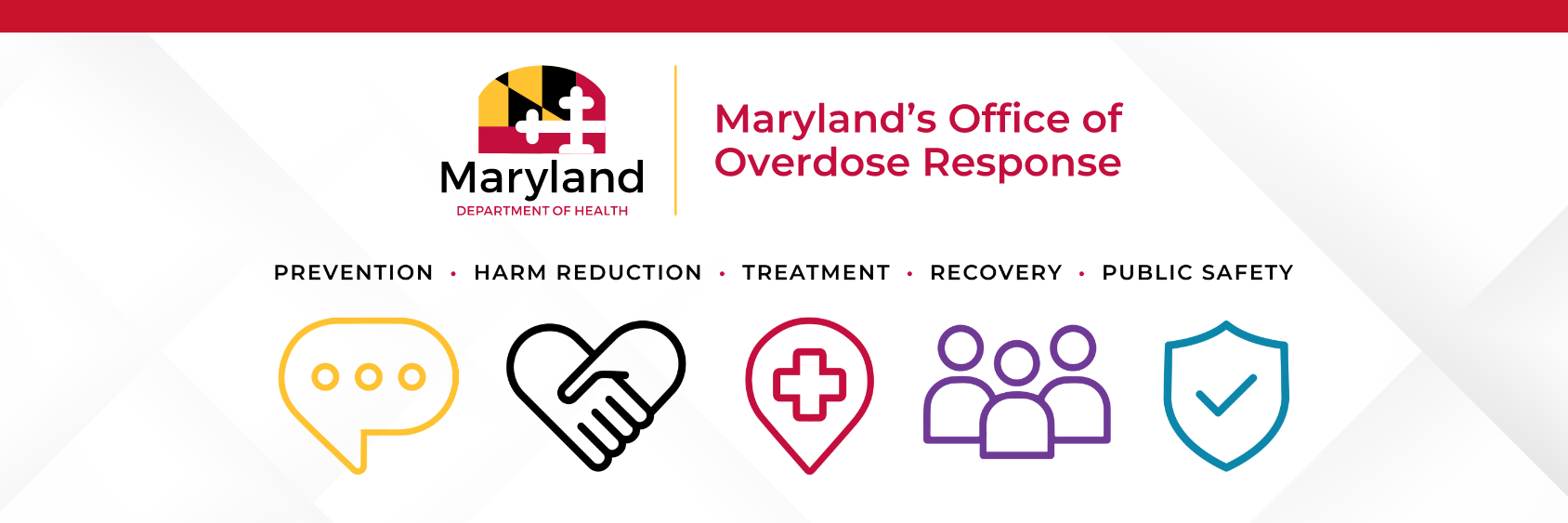Public Awareness Resources
This page contains public awareness resources related to substance use and overdose that have been developed by the Maryland Department of Health. We encourage our partners to share these videos and resources as you work to increase awareness throughout Maryland.
988
988 is the National Suicide & Crisis Lifeline. The 988 Lifeline provides 24/7, free and confidential support for people in distress, prevention and crisis resources for you or your loved ones. Visit https://health.maryland.gov/bha/Pages/988md.aspx to learn more.
988 – Help is Here
988 for Young People
988 Spanish
Naloxone
Naloxone is a life-saving medication that can quickly restore the breathing of a person experiencing an opioid overdose. Learn more at StopOverdose.maryland.gov/naloxone.
Naloxone English
Naloxone Spanish
Naloxone Training English
Naloxone Training Spanish
Fentanyl
Fentanyl is a powerful synthetic opioid that 50-times stronger than heroin. Learn more at StopOverdose.maryland.gov/fentanyl.
Fentanyl English
Fentanyl Spanish
Fentanyl & Xylazine
Xylazine, which some may refer to as “tranq,” is often found in combination with fentanyl. It has increasingly been detected in overdose deaths. Xylazine is associated with severe wounds that spread and worsen quickly. Learn more at StopOverdose.maryland.gov/xylazine.
Fentanyl & Xylazine English
Fentanyl & Xylazine Spanish
Good Samaritian Law
Maryland’s Good Samaritan Law, also referred to as the Good Sam Law, protects those who assist with an emergency alcohol or drug related overdose. Learn more at StopOverdose.maryland.gov/good-samaritan-law.
Good Samaritan Law English
Good Samaritan Law Spanish
Stigma
Negative attitudes toward substance use can discourage individuals from seeking help. Understanding that addiction is a treatable health condition can reduce stigma and empower individuals to reach out for support. Learn more about stigma at StopOverdose.maryland.gov/stigma.
Stigma – Loved Ones English
Stigma – Loved Ones Spanish
Talk to Your Doctor
Every patient or advocate should ask questions whenever being prescribed an opioid. Prescription opioids may not be right for everyone. Asking questions is important for your health when your doctor, dentist, or other health care professional prescribes you an opioid, such as hydrocodone, oxycodone, codeine, or morphine. Learn more at StopOverdose.maryland.gov/talktoyourdoctor.
Talk to you Doctor – Long form
Talk to you Doctor – ER English
Talk to you Doctor – ER Spanish
Talk to you Doctor – General Practice English
Talk to you Doctor – General Practice Spanish
Talk to you Doctor – Clinic English
Talk to you Doctor – Clinic Spanish

 1-888-373-7888
1-888-373-7888 233733
233733